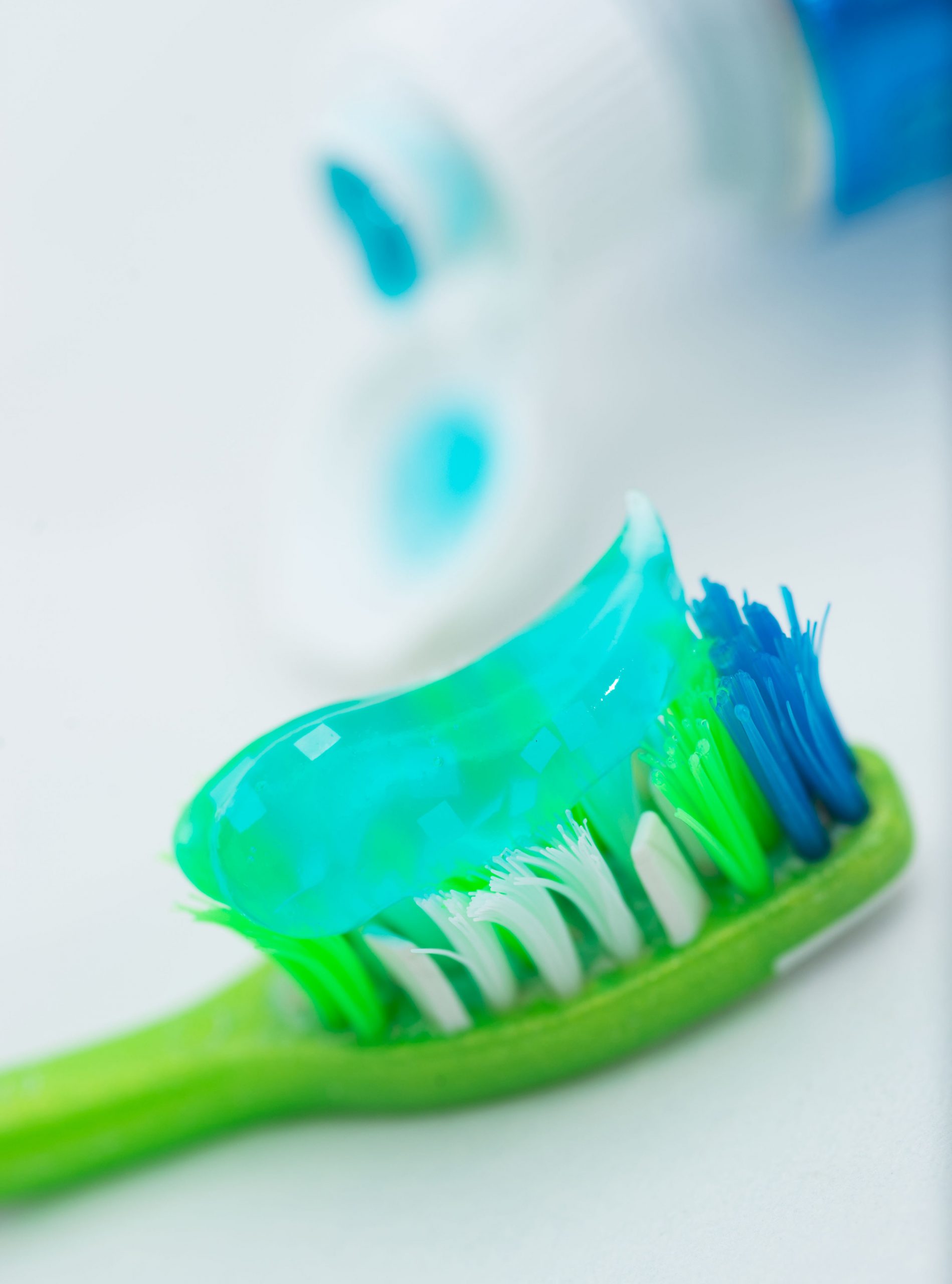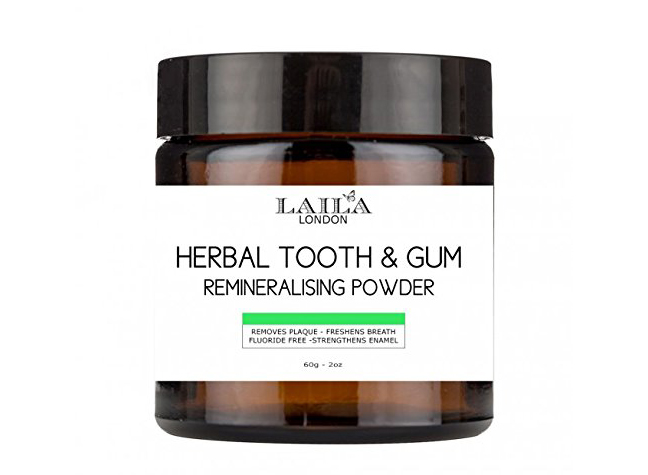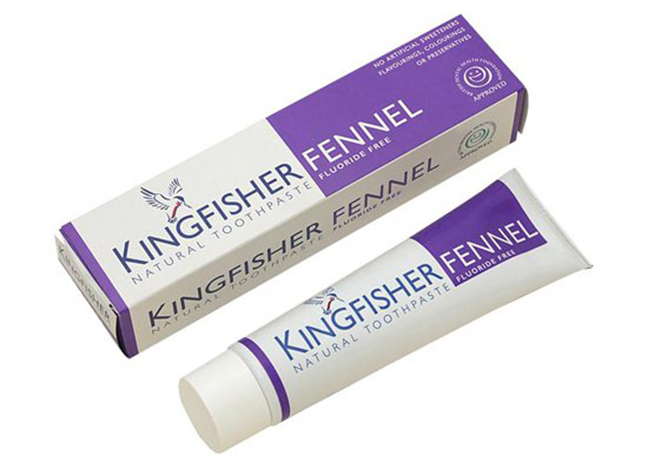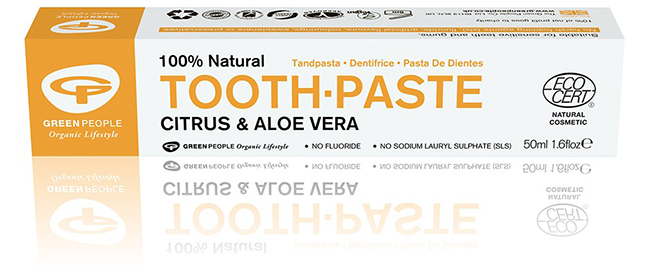Is Your Toothpaste Damaging Your Health?

New research suggests that the chemicals found in conventional toothpastes and mouthwashes could be doing more harm than good, not only to our teeth, but to our general health and even the environment at large. We investigate the facts behind the scare stories, and find out whether the natural alternatives are worth the hype... Fluoride: Friend or Foe?
Dentists recommend brushing with a toothpaste containing at least 1350ppm fluoride twice daily, claiming that it is the most effective way to prevent cavities and tooth decay. Its official classification as a neurotoxin by The Lancet, however, has seen some of us begin to question this accepted wisdom. According to a Harvard meta-analysis of relevant research, children whose water supply is highly fluoridated achieve significantly lower scores on IQ tests. Water fluoridation has previously been linked with cot death, eczema, arthritis, thyroid dysfunction, Alzheimer's disease, increased risk of hip fracture and various cancers. It may also impair glucose metabolism and can cause collagen stored in the skin, muscles, ligaments, bones and teeth to disintegrate. In fact, when water fluoridation programmes were halted in certain parts of the world, tooth decay appeared to decrease!
Most health concerns stem from water fluoridation, but, with the makers of Colgate reportedly admitting that a small tube of toothpaste contains enough fluoride to kill a young child, should we be worried? Fluoride is not as readily absorbed through the membranes of the mouth as other substances, but, if you suffer from irritated or bleeding gums, it could find its way into your bloodstream. Furthermore, research conducted on older children suggests that we may ingest up to a third of the toothpaste we squeeze out of the tube each time we brush.
And it's not just fluoride that has us running scared. Conventional toothpaste is packed with a host of potentially harmful additives, including artificial sweeteners, triclosan (which reacts with the chlorine in tap water to produce chloroform) and sodium lauryl sulfates (which may cause gingivitis, receding gums and canker sores). Once they make their way down the plughole and into the ecosystem, these chemicals often prove toxic to marine life. Microbeads are also found in most toothpastes.
What About Mouthwash?
Mouthwash isn't off the hook, either. Functionally speaking, it's at best unnecessary and at worst potentially harmful to our dental health, say dentists, since it rinses away the protective minerals left on our teeth after brushing.
More worryingly, those who rinse more than 3 times a day may be at increased risk of developing oral cancer, whilst mouthwashes containing chlorhexidine (such as Corsodyl) may raise blood pressure by killing good bacteria in the mouth.
Sign up to our free daily email for the latest royal and entertainment news, interesting opinion, expert advice on styling and beauty trends, and no-nonsense guides to the health and wellness questions you want answered.
The use of chlorhexidine mouthwashes has even been linked with the rise of antibiotic-resistant superbugs.
What Are The Alternatives?
Oil pulling, favoured by the likes of Gwyneth Paltrow, can safely replace mouthwash, according to dental professionals.
But is brushing teeth with coconut oil and the like effective? Dr Damien Brady of the Athlone Institute of Technology has been researching the benefits of coconut oil as an "attractive alternative to chemical additives". His team discovered that, bolstered by digestive enzymes, coconut oil was able to curtail the growth of harmful bacteria in the mouth, including the cavity-causing Streptococcus mutans.
Natural beauty bloggers claim that brushing teeth with coconut oil and turmeric has an instant whitening effect, but Nicole Scherzinger, who previously favoured coconut oil, now chooses charcoal. "That's even better," she says. "Makes your teeth whiter." Devotees believe that, mixed with a little water to form a paste, crushed activated charcoal will not only whiten teeth, but remove stains, prevent cavities and kill bad bacteria.
As we age, tooth enamel begins to wear away, whilst the falling collagen levels and drop in saliva production which accompany the menopause can encourage tooth loss and decay. So is it a good time to ditch the fluoride, or not? Liz, 57, stopped using conventional dental hygiene products after suffering what she now believes to have been a toxic reaction to the chemicals contained in an at-home remineralisation treatment which came free with her usual toothpaste. "Within half an hour I felt sick, dizzy and lightheaded," she tells me. "I didn't put it down to the treatment, until the same thing happened again the next day."
Deciding to seek out "a more natural, gentle alternative," she replaced her usual toothpaste with Laila London's Herbal Tooth & Gum Remineralising Powder. Free from fluoride, triclosan, sodium lauryl sulfates and artificial sweeteners, it claims to remineralise weakening enamel, whiten and polish, draw out heavy metals and toxins, and even help to heal decay with its combination of bentonite and white kaolin clay and calcium powder. Myrrh is added to relieve sore, swollen gums, whilst mint keeps breath fresh. "I've been using the powder for a month now, and my teeth are noticeably whiter," says Liz. "They look less translucent, too, so I think the remineralisation may be working. And it tastes very pleasant! I'll definitely continue using a natural, fluoride-free toothpaste like this one."

Buy now at amazon.co.uk for £10
Many natural options also contain ingredients such as aloe vera (thought to soothe and heal sensitive gums), tea-tree (which has antibacterial properties) and xylitol (a naturally occurring sugar-like sweetener extracted from plant material which has been found to inhibit the growth of cavity-causing bacteria).
Prefer the convenience of a 'squeeze and go' option? Kingfisher Fennel Fluoride-Free toothpaste is approved by the British Dental Health Foundation.

Buy now at biggreensmile.com for £3.15
Green People also produces a mind-boggling array of fluoride, SLS, triclosan and microbead-free natural toothpastes enhanced by myrrh, organic essential oils and vitamin C.
